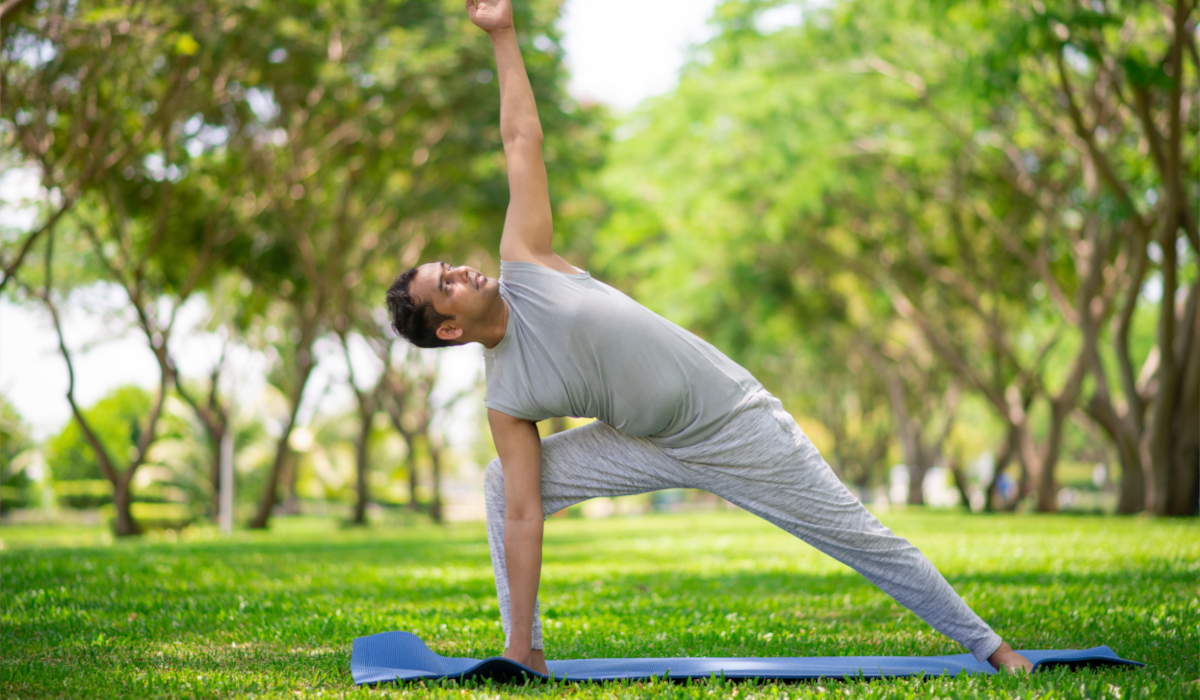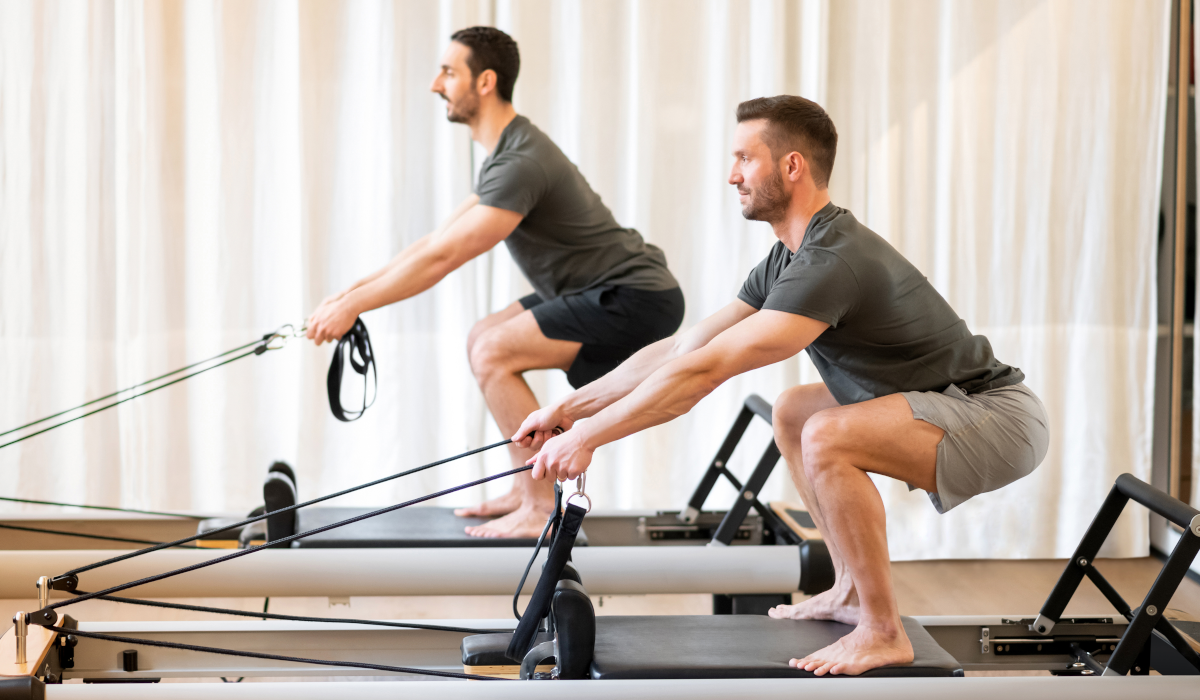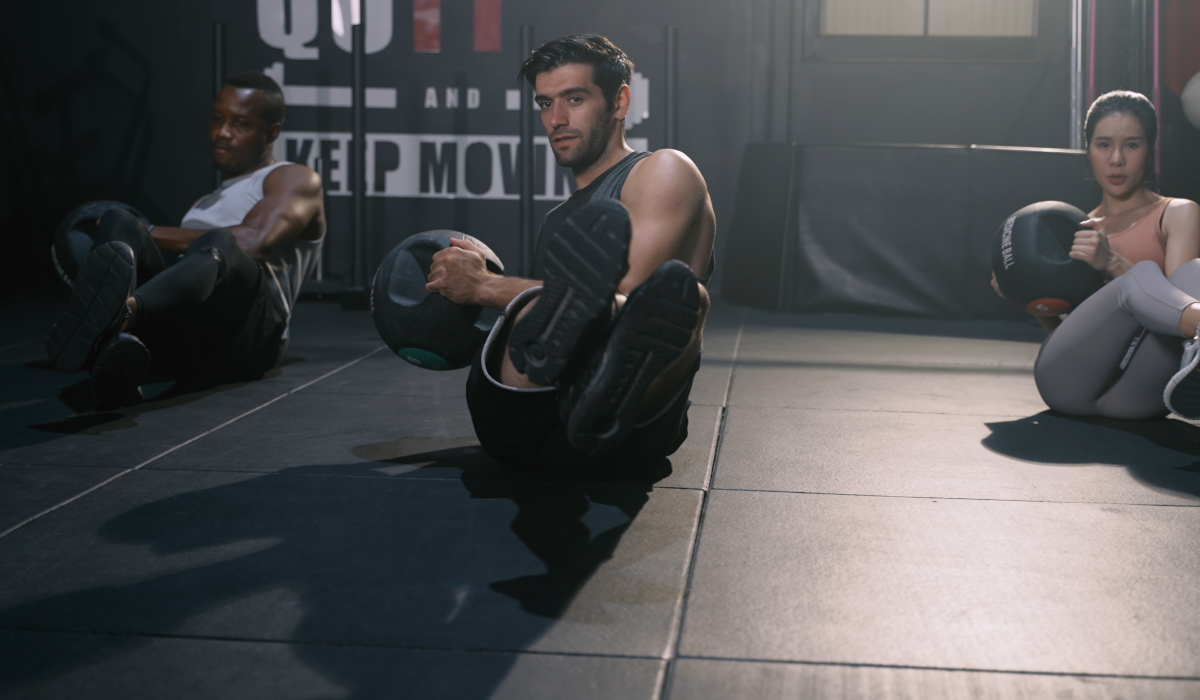Grab your cheat sheet |
Are you a fitness fanatic looking for ways to achieve a better overall balance between your physical and mental health? Well, you’ve come to the right place.
Hitting the gym, sculpting muscles and having a good workout routine can put you in good stead to reach your health and fitness goals.
But, to get the most from your body-boosting exercise efforts, you’ve got to take care of the mental as well as the physical.
Here, we’ll explore ways in which you can strike a healthy balance with cool cross-training activities you can weave into the mix.
Ready? Let’s go.
How can cross-training boost your wellbeing?
Cross-training can boost your wellbeing in a big way by offering variety, new experiences, and added fitness perks.
Imagine having a new exercise or activity that still allows you to reach your fitness goals, but enables your body to learn new skills—all while improving your overall physical fitness. That’s what cross-training can do for you.
By adding cardio workouts, strength training, flexibility work, and functional movements to your cross-training program, you’ll target various muscle groups and energy systems (making you feel good in mind and body).
Cross-training addresses muscular imbalances, corrects movement patterns, and reduces the likelihood of injuries caused by overloading specific muscle groups or performing repetitive motions.
If you’re looking to avoid injury, cross-training will be your best friend. It helps to reduce the risk of overuse injuries commonly associated with repetitive activities.
By alternating between different movements and exercise modalities, you can minimize strain on specific muscles and joints, strengthen stabilizing muscles, and improve joint mobility.
In addition to its treasure trove of physical benefits, cross-training contributes to mental wellbeing by promoting enjoyment, motivation, and mental resilience.
It offers a great way to take care of your emotional wellbeing as well as your physical health. The variety and novelty of different activities keep workouts exciting and prevent boredom, making it more likely that you’ll stick to your fitness routine long-term.
Trying new activities and exploring different exercises also stimulates cognitive engagement and creativity, giving you a positive mindset and an overall sense of accomplishment. Awesome.
Read: The 15 Benefits Of Exercise For Mental Health And Wellbeing
8 cross-training activities to improve your wellbeing
Now you know all about the benefits, let’s look at eight cross-training activities that will boost your wellbeing for the better.
Yoga

Yoga offers a range of benefits for both the body and mind. It improves flexibility, balance, and core strength while also promoting relaxation and stress reduction.
Adding yoga to your routine can help alleviate muscle tightness, enhance recovery, and prevent injuries commonly associated with weightlifting.
Whether you prefer a vigorous vinyasa flow or a restorative yin practice, adding yoga sessions to your weekly schedule can provide you with great mental training and enhance your overall wellbeing.
Swimming

Dive into the pool for a full-body workout that's gentle on the joints. Swimming engages multiple muscle groups simultaneously while providing cardiovascular benefits.
It's an excellent way to improve endurance, increase lung capacity, and enhance overall cardiovascular health.
Plus, swimming's low impact nature makes it ideal for individuals recovering from injuries or looking to add variety to their routine.
Cycling

Whether you hit the road or hop on a stationary bike, cycling is an excellent cross-training activity for gym-goers.
Cycling builds leg strength, improves cardiovascular fitness, and burns calories effectively. It's also a great way to explore the outdoors and enjoy some fresh air while getting your sweat on.
Consider adding cycling into your routine as a low-impact alternative to running or as a fun way to switch up your cardio workouts.
Pilates

Pilates focuses on core strength, stability, and flexibility, making it an ideal complement to traditional strength training.
By targeting deep stabilizing muscles, pilates helps improve posture, prevent injuries, and enhance overall body awareness.
Whether you attend a group class or follow along with online videos, adding pilates sessions to your weekly routine can help you build a stronger, more resilient body.
HIIT (High-Intensity Interval Training)

HIIT workouts are all about pushing your limits and maximizing calorie burn in a short amount of time. These fast-paced workouts typically alternate between periods of intense exercise and brief rest or recovery.
Getting a HIIT session into your weekly routine can help improve cardiovascular fitness, boost metabolism, and torch fat. Plus, the variety of exercises and intervals keeps things exciting and fun.
Trail running

Take your cardio workouts off the treadmill and hit the trails for a refreshing change of scenery. Trail running challenges your balance and agility, while providing a great cardiovascular workout.
The uneven terrain and natural obstacles engage stabilizing muscles that may be overlooked in traditional running workouts.
Spending time in nature has also been shown to reduce stress and improve mental wellbeing—it’s a double win.
Rock climbing

Looking for a fun and challenging way to build strength and agility? Give rock climbing a try. Climbing requires full-body coordination, upper-body strength, and mental focus as you navigate routes and conquer obstacles.
Rock climbing is a great way to challenge yourself physically and mentally while enjoying the activity with other climbers.
Whether you're scaling indoor walls or tackling outdoor crags, rock climbing offers a unique and rewarding workout experience.
Martial arts

Martial arts disciplines such as karate, taekwondo, or Brazilian jiu-jitsu offer a comprehensive workout that combines cardiovascular conditioning, strength training, and mental discipline.
Training in martial arts not only improves physical fitness but also enhances self-confidence, focus, and stress management skills. Plus, it's a great way to learn self-defense techniques while having fun and connecting with a community of like-minded fitness lovers.
Striking the right balance for tip-top health
Finding the right balance to get the best health and fitness outcome, while going for your goals can be a challenge.
One thing we know is that this journey can be rocky. But we want to put you in the best possible position for your success.
An essential factor is to avoid burnout. But, let’s get into the ways you can strike the right balance for optimal health first.
Proper nutrition and hydration

Fuel your body with nutritious foods and stay hydrated throughout the day. Proper nutrition and hydration are essential for energy levels, recovery, and overall health.
Adding mood-boosting foods into your diet can have a positive impact on your mental health and overall wellbeing.
Here are some examples of healthy foods that are known for their mood-enhancing properties…
- Fatty fish (salmon, trout, and sardines)
- Dark leafy greens (spinach, kale, and swiss chard)
- Berries (blueberries, strawberries, and raspberries)
- Nuts and seeds (almonds, walnuts, and flaxseeds)
- Whole grains (oats, quinoa, and brown rice)
- Legumes (beans, lentils, and chickpeas)
- Probiotic-rich foods (yogurt, kefir, and sauerkraut)
- Dark chocolate
Eating well is as essential to improving your wellbeing as exercise. If you struggle with getting the right amount of nutrients your body requires through diet alone, taking a supplement to fill in the gaps is a good idea.
Supplementation
Supplementation can play a role in supporting overall wellbeing. But it's important to remember that supplements should complement a healthy diet and lifestyle rather than replace them.
Let’s take a look at some supplements that enhance your wellbeing…
-
Omega-3 fatty acids: These acids are important for brain health, heart health, and reducing inflammation in the body.
-
Vitamin D: This key vitamin helps maintain healthy bones, support immune function, and may play a role in reducing the risk of depression.
-
Probiotics: These beneficial bacteria support gut health and digestion, which is essential for immune function, digestion, and overall wellbeing.
-
Magnesium: This mineral helps to reduce stress, promote relaxation, and support sleep quality. It can also help alleviate muscle cramps and support bone health.
- Vitamin B: B vitamins, including B6, B12, and folate, play important roles in energy metabolism, mood regulation, and nervous system function. A B-complex supplement can help ensure you're getting enough of these essential nutrients, especially if you follow a vegetarian or vegan diet.
Related: How Important Is Nutrition For Fitness Goals?
Strategies to avoid burnout
Avoiding burnout is key if you want to stick to your fitness goal and stay on track. When you want to reach your goals badly, you can sometimes experience self-doubt and exhaustion from doing “everything right” without being exactly where you want to be.
But, with these strategies, you can set yourself up for success and swerve burnout.
Set realistic goals
Establish achievable and realistic fitness goals that are specific, measurable, and attainable within a reasonable timeframe. Break larger goals into smaller milestones to track progress and celebrate achievements along the way.
Prioritize balance
Balance your fitness routine with other aspects of your life, including work, family, social activities, and relaxation. Avoid overcommitting to exercise at the expense of other important areas of your life.
Quality sleep
Quality sleep is essential for recovery and overall well-being. Aim for seven to nine hours of sleep per night and establish a consistent sleep schedule. Adequate rest is also essential for optimal physical and mental performance.
Get social
Surround yourself with a supportive community of friends, family, or workout buddies who share your fitness goals. Encourage each other, celebrate successes, and provide accountability to stay motivated and engaged.
Mindful rest days
Add planned rest days to your training schedule to allow your body and mind to recover fully.
Use rest days as an opportunity to engage in gentle activities like walking, stretching, or leisurely hobbies that promote relaxation and recovery.
Practical mindfulness exercises to improve focus and reduce stress

Practicing mindfulness exercises can significantly improve focus and reduce stress by training the brain to be more aware of the present moment. It can also help with emotional regulation and reduce the risk of mental health problems.
Engaging in mindfulness training can additionally increase your focus, enhance your cognitive flexibility and improve your self-awareness.
Let’s get into some mindfulness exercises for you to try.
Body scan
How to do it: Lie down in a comfortable position or sit in a chair with your feet flat on the floor. Close your eyes and bring your attention to your body.
Starting from your toes, slowly scan your body upward, paying attention to any sensations or areas of tension. Take note of any areas where you feel tightness or discomfort and breathe into those areas, allowing them to relax and release.
Mindful walking
How to do it: Take a walk outside and focus your attention on the sensations of walking. Notice the feeling of your feet making contact with the ground, the movement of your legs, and the rhythm of your breath.
Pay attention to your surroundings, noticing the sights, sounds, and smells around you without judgment.
Gratitude practice
How to do it: Take a few minutes each day to reflect on things you're grateful for. Write down three things you're thankful for, no matter how big or small.
Reflecting on gratitude can help shift your focus away from stressors and negative thoughts, promoting a more positive outlook on life.
Mind-body connection practices
Try mind-body practices like yoga, meditation, or deep breathing exercises to manage stress, improve focus, and enhance overall wellbeing.
These practices engage your focus, awareness, clarity of thought, and enhance your ability to stay in the present moment.
Feel energized and pumped for your workout with CN Pre-Train…
Want more energy, focus, and drive for your workouts? Crazy Nutrition’s Intensive Pre-Train formula includes 13 powerhouse ingredients to give your body what it needs to ace your workouts.
If you want to achieve your best physical performance—without jitters, stomach cramps, or digestive issues, Crazy Nutrition’s pre-workout supplement is where it’s at.


